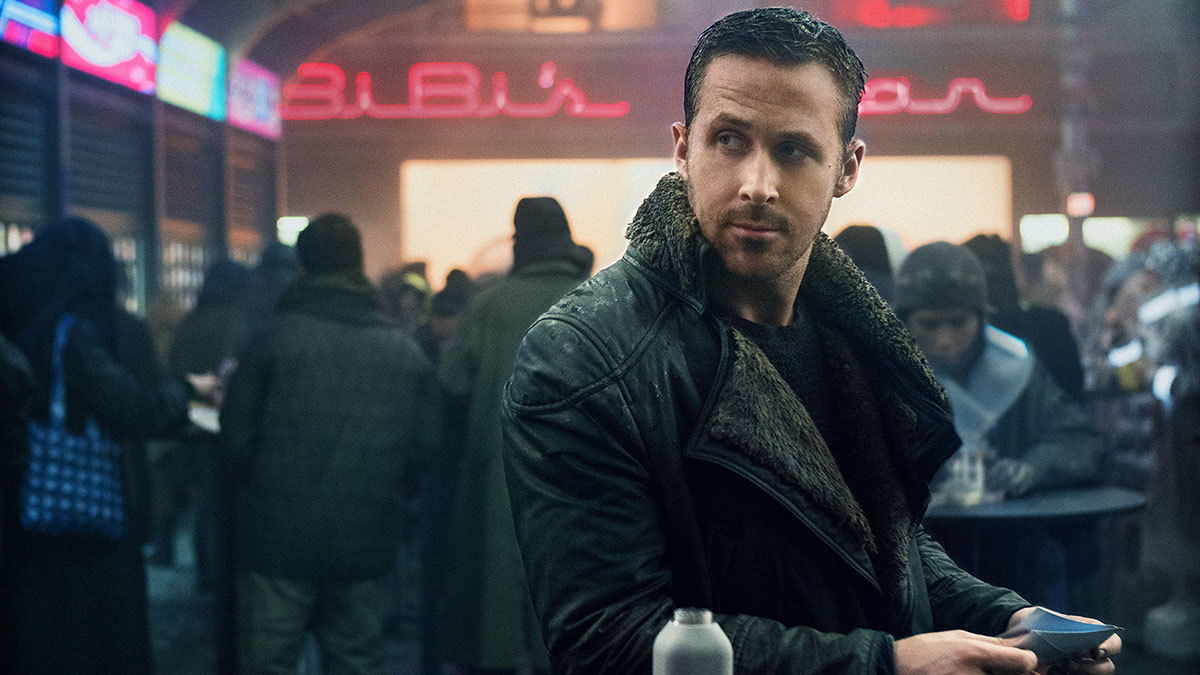
The following review contains some spoilers.
Movie sequels are infrequently good; sequels that arrive decades after the original are generally disasters. I submit, as evidence, The Two Jakes (the Chinatown sequel), The Evening Star (Terms of Endearment), Godfather 3, and even The Phantom Menace (technically a prequel, but you take my point).
That’s why Blade Runner 2049 is nothing short of a miracle. Denis Villeneuve pays homage to the sci-fi noir world that Ridley Scott (and Phillip K. Dick) built in 1982’s Blade Runner and opens it up, riffs on it, expands it. I confess I missed a bit of the original’s New Romantic/punk aesthetic but Villeneuve’s meticulous world building, Hans Zimmer and Benjamin Wallfisch’s Vangelis-like score, and Roger Deakins’ stunning cinematography more than compensate. (Way too early prediction: This is the year Deakins ends his losing streak and finally wins that long overdue Oscar.)
A popular fan theory stemming from the original Blade Runner is that Deckard (Harrison Ford), the “blade runner” cop who hunts humanoid robots called replicants, is actually a replicant himself. Blade Runner 2049 takes that theory and runs with it. Our hero, Ryan Gosling’s K, is explicitly a replicant—but he’s a new model; built to be dutiful and to never rebel. At first I thought this could be problematic. Even played by Ryan Gosling—hunkily clad in dystopian-chic leather coats with the collars popped—how were we supposed to relate to a character who isn’t even human?
I should’ve known better. In some ways, the replicants were the most interesting and relatable characters in the original film—more human than human, as they are famously described. Indeed, K’s status as a replicant only adds to his character growth. For starters, he’s forced to kill his own kind—a fact that fills him some measure of guilt. He’s also existentially self-aware: shrewd enough to know that the memories he has are fake implants, but still haunted by them. And, while he likes to tell himself he has no secret yearnings—he knows his place in the pecking order; he gets that he’s a machine—he does share a special bond with his hologram girlfriend, Joi (Ana de Armas), and a part of him wants to be human, or at least special.
Just like in the first one, rebel replicants are threatening to disrupt a fragile peace. And now there is a new wrinkle: word of a replicant who became pregnant and gave birth. K’s lieutenant boss (Robin Wright) sees this as a potential disaster—if replicants know that they can reproduce, a rebellion will be all but inevitable, wiping humans off the earth. However, the new replicant master builder, Niander Wallace (Jared Leto), is delighted by this prospect. Imagine how many more replicants he could deploy and sell if they were self-generating? He sends out his glam-bot assistant/assassin, Luv (Sylvia Hoeks), to follow K, as he gets closer to the truth.
Eventually, the action leads K to a sanctuary where a woman in white (Carla Juri) creates the memories that are implanted in replicants and to an abandoned art deco hotel where Deckard (Ford) is now living with a dog. K needs to Deckard to help him put together the pieces, but Deckard—now old and grizzled; a widower of some sort (his replicant lover Rachael is long dead)—is understandably suspicious. The two men—er, man and replicant?…er, replicant and replicant?—forge a tentative truce.
I can’t emphasize enough how cool Blade Runner 2049 looks. It marries Scott’s overstuffed, neon grunge aesthetic from the first film with Villeneuve’s own affinity for hulking, minimalist set pieces. The sound design is stellar, too—every clang, rattle, and crunch can be felt deeply in your bones. This is a film that most definitely should be appreciated on the big screen.
Blade Runner 2049 is a little too long (nearly three hours!) and doesn’t quite advance the first film’s shortcomings regarding gender: most of the female characters are sex-bots, assassin-bots, or holograms. What’s more, the questions it asks—what does it mean to be human? is sentience tantamount to humanity? do any of us really know our place in the universe?—have been explored many times since. But what a bold and daunting task Villeneuve undertook in updating one of the most beloved and influential sci-fi films of all time. He more than succeeded. On its own merits, Blade Runner 2049 is a very strong film; as a sequel, it’s nothing short of brilliant.
